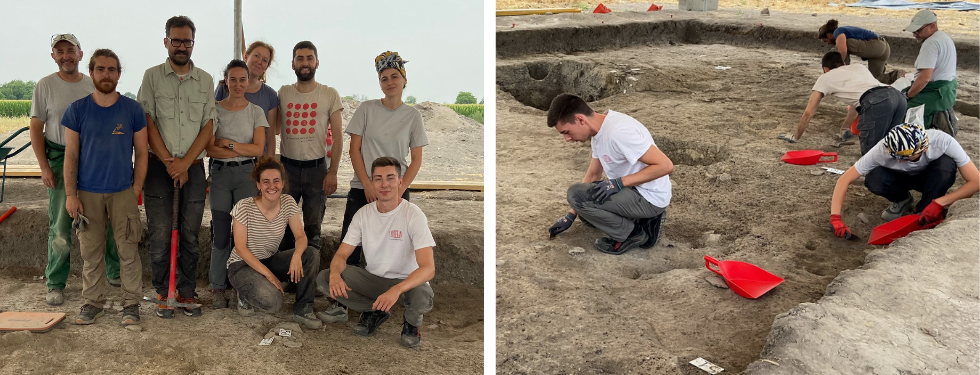What was daily life like in the European Bronze Age? The first part of the GEODAP project was completed in Povegliano Veronese

Extracting Bronze Age lifeways from the domestic stratigraphic record: it's the aim of the GEODAP project (GEOarchaeology of DAily Practices) led by professor Cristiano Nicosia who was awarded an ERC Consolidator Grant in 2021.
Ten key archaeological sites in six European countries constitute the project’s database and the first field ended few days ago in Povegliano Veronese, near a site where in the 1980s some very well preserved housing structures from the Bronze Age were excavated. In contrast to large-scale narratives based on artefacts, often prestige items from funerary contexts, GEODAP project shifts the scale and the object of archaeological investigation, and aims at bringing interdisciplinary scientific analyses into dialogue with anthropological understandings of lifeways and households.
The Bronze Age was a key moment for human progress and for the evolution of social structures: this project will help to understand the habits, the type of diet, the homes and the productive activities of those who lived between 1550 and 1350 BC.
“The project focuses on Bronze Age houses and dwelling structures in order to reconstruct the daily lives and the lifeways of Bronze Age people. It deals with archaeological sites that are spread over six European countries: some of them are excavated by colleagues in their respective countries and some of them, like this one, are excavated directly by us”, professor Cristiano Nicosia said.
Marta Dal Corso, researcher of the Department of Geosciences of the University of Padua, is part of the project and she deals with paleobotanical analyzes. “In this site I’m responsible for the plant remains that we are sampling for micro remains, like charcoal and carbonized seeds and fruits, and also micro fossils like palinomorphs, pollen and spores and phytoliths. Overall these plant remains will give us information about the vegetation that was used by the inhabitants of the site and about their subsistence economy, so what they were eating and producing in terms of cultivated plants but also of gathered fruit and other plant parts”, Marta Dal Corso explained.





